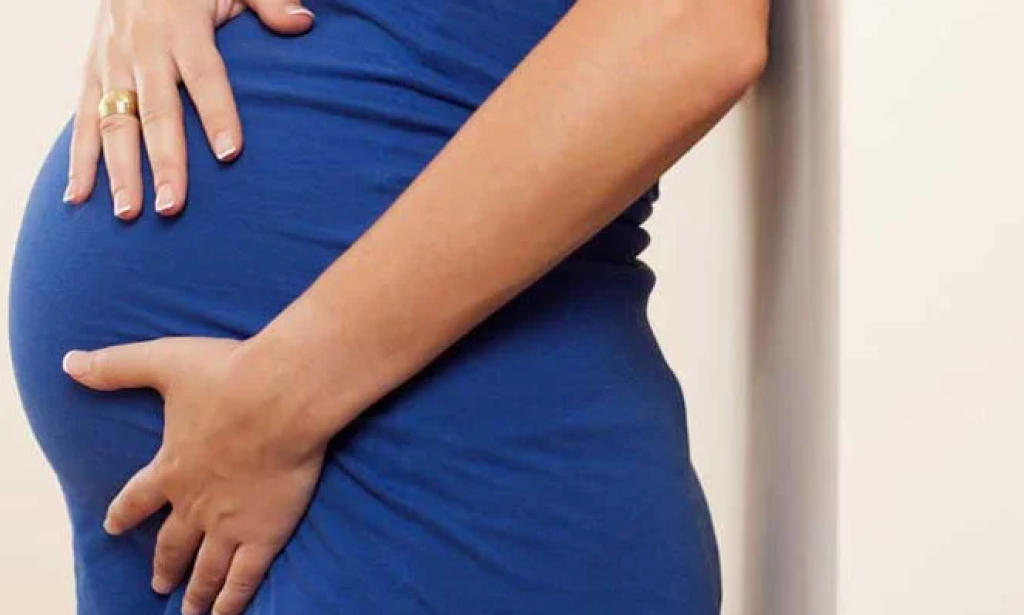It's common to go through all the dramatic ways your water could break in the final few weeks of pregnancy, however, it is important to know everything about this phase leading to labour.
Only 15 to 20% of pregnant women have their water breaking before labour begins, in contrast to what you would see in the movies.
According to Ashley Brichter, founder and CEO of Birth Smarter, which provides pregnant women with in-person training, it's just as likely to be a tiny trickle as the conventional river of fluids.
We've outlined all you need to know about water breaking, also known as membrane rupture, to dispel popular misconceptions. To find out how your water breaks, how it feels and looks, and when to go to the hospital, read as follows:
What causes your water to break?
Your baby is cushioned and safeguarded by an amniotic sac, which is a bag filled with amniotic fluid throughout pregnancy. This transparent fluid comes out of your cervix and vagina and is followed by persistent leakage as the sac ruptures, sometimes known as "your water breaking."
Does water breaking mean my baby is on the way?
Short answer: Yes, however, you might wait a little while before pulling out your hospital bag. Even when your water breaks, labour may still be a day or two away, according to Allison Hill, MD, co-author of The Mommy Docs' Ultimate Guide to Pregnancy and Birth.
Most of the time, contractions come first, followed by the rupture of the water. In other cases, the water bursts first, and labour pains normally start within a few hours.
What does it feel like when your water breaks?
Every woman's experience of their water breaking is unique, just like everything else throughout pregnancy.
Some women experience it as a sluggish drip or discharge (you might believe you've suddenly developed incontinence!). Others get that Hollywood-style gush when they feel as though they just fully peed their trousers. Others may not even detect the bag breaking, while some may hear a snap and feel pressure before feeling relief.
How much fluid comes out when your water breaks?
The million-dollar question—and the one that likely keeps you up at night—is this. Depending on whether you have a tear or a major rupture, the amount that initially leaks out can range from a modest trickle to an all-out gush, according to Yvonne Bohn, M.D., co-author of The Mommy Docs' Ultimate Guide to Pregnancy and Birth.
Once the amniotic fluid begins to leak, it won't stop until all 600–800 millilitres (or around 2 1/2–3 cups) have been lost. You can cover your seat with a fresh towel or wear a sanitary pad to protect your clothing in the interim.
Although your body excretes urine and discharge from the same general area, amniotic fluid usually has no odour, but some pregnant women claim it has a nice scent.
Additionally, it frequently appears clear or has faint blood traces.
What should I do if my water breaks?
The first thing you should do after your water breaks is call an OB-GYN or other medical professional. They will consider a number of factors, such as:
Premature rupture of the membranes, or PPROM, occurs when the amniotic sac ruptures prior to 37 weeks of gestation. Your OB-GYN may attempt to postpone labour to allow your baby more time to develop, depending on how soon this occurs.
Your contractions
It is true that first-time pregnant women frequently experience longer labour times. However, if regular contractions don't start within 24 hours of your water breaking, an OB-GYN or other medical professional may want to examine you and the baby and consider using Pitocin to start labour.
How long it's been since your water broke
Your doctor might inject you with antibiotics if your baby hasn't arrived within 24 hours of your water breaking.
According to Dr Hill, this is because there is a possibility that an infection could enter the uterus and infect the unborn child.
As for what to avoid after your water breaks in pregnancy, it may depend on your provider. "I allow [women] to get in a bath, but I know others who don't recommend it," Dr Hill says. "I also recommend they not have intercourse, because that could introduce bacteria into the uterus."
When to call a healthcare provider
Every time your water breaks, you should get in touch with an OB-GYN or other medical professional.
They might admit you to the hospital if you're less than 37 weeks pregnant or GBS Group B Streptococcus positive. Observe how the amniotic fluid is doing as well. You should go straight to the hospital if it smells bad, is heavily bloodstained, or has a black or greenish tinge. All of those are indications that your baby might be in trouble.
Observe whether contractions have started to conclude. Tell a healthcare professional if more than 24 hours have passed since your water broke and you're still not experiencing contractions.

You must be logged in to post a comment.